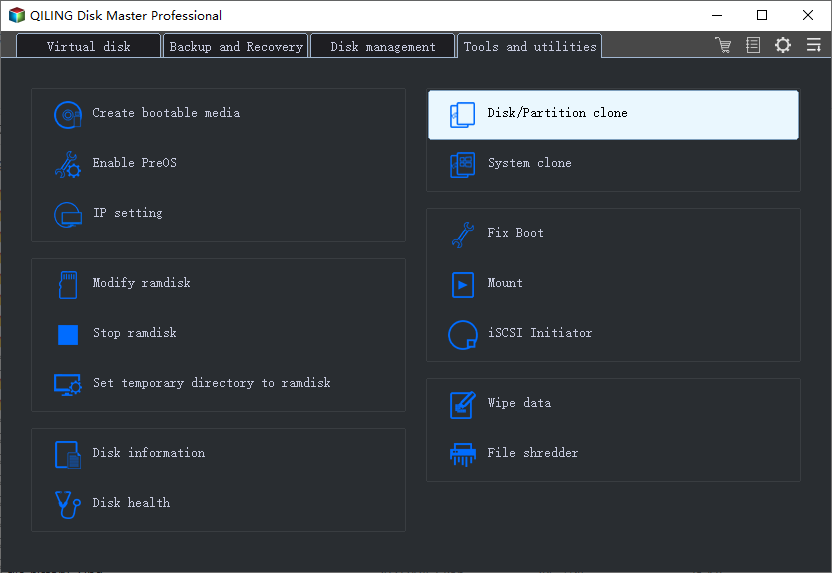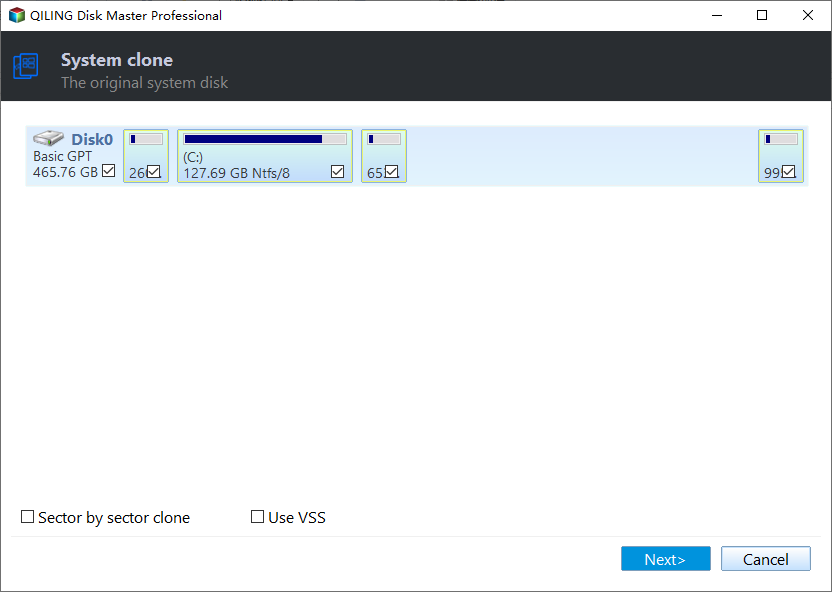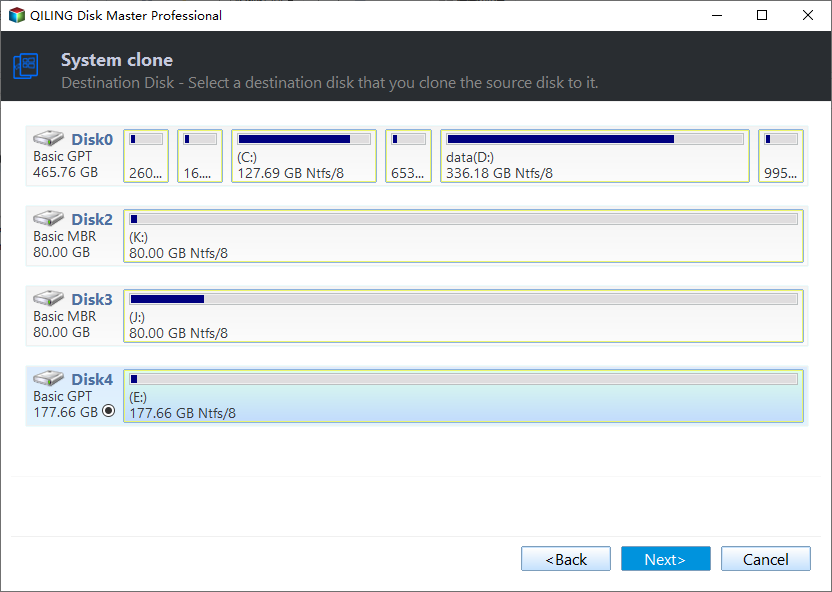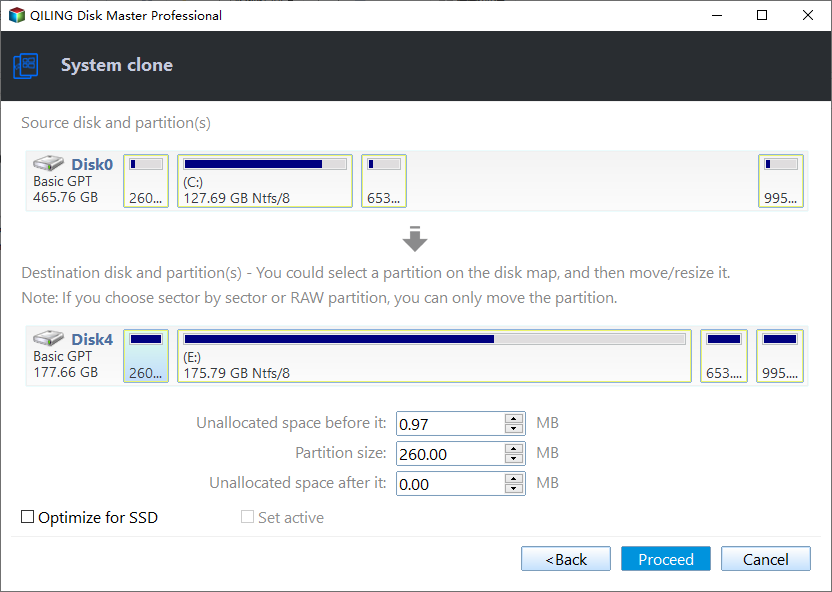Free OS Migration Software: Migrate OS to SSD without Reinstallation
Why need free software to migrate OS?
Free OS migration software, as its name suggests, allows users to migrate their operating system to a new drive, either an SSD or HDD, without cost. This process provides increased disk space, improved system performance, and keeps the operating system organized, all while eliminating the need for a time-consuming system installation.
There are various situations where free OS migration software is particularly useful:
1. New computer setup: When upgrading to a new computer, free OS migration software helps preserve the old operating system and applications, saving users from the inconvenience of reinstalling everything.
2. Hard drive upgrade: If your current disk space is insufficient or your computer's performance is suffering, upgrading to a larger HDD or an SSD is a viable option. With free OS migration software, you can efficiently transfer the system, ensuring a seamless transition to the new drive.
Two ways to migrate OS to SSD/HDD for free
If you want to transfer the operating system (OS) to a new hard disk drive (HDD) or solid-state drive (SSD) without reinstalling Windows, you can use the Windows built-in backup and restore tool or third party free OS migration software.
1. Migrate OS with Windows built-in tool
If you want to migrate OS without third-party tool, you can create a system backup and then restore it to the new hard drive or SSD. In Windows 11, 10 or Windows 7, you can create an image backup including all critical volumes. If you are using Windows 8 or 8.1, you can still create a system image.
However, before you do, you need to confirm the following:
1. The destination drive must be equal to or larger than the hard drive that you backed up.
2. Only NTFS-formatted volumes can be protected. If your drive is not formatted with NTFS, you may need to format or convert the partition to NTFS file system. NTFS is a file system that is widely used on Windows systems, and it is the only file system that is supported by Windows Backup.
3. The destination drive must have the same partition style as the source drive. This means that if the source drive is using the Master Boot Record (MBR) partition style, the destination drive must also be using the MBR partition style.
2. Migrate OS with free OS migration software
If you're not comfortable with the first method, you can use a third-party free OS migration tool to move your operating system to another SSD or HDD drive. One such tool is Qiling Disk Master Standard, which offers a "Clone Disk" feature that allows you to clone your operating system and all applications on the boot partition (usually the C: drive) to another drive. This can save you a lot of time and effort compared to reinstalling everything. Here's how you can use it:
- Note:
- Qiling Disk Master Standard only supports clone OS between MBR and MBR disks. If you need to migrate OS from MBR to GPT or GPT to MBR/GPT, you can employ its Professional version.
Step 1. Download and install Qiling Disk Master Standard. Then, run it and click "Clone" -> "Clone Disk" on the main interface.
Step 2. Choose the old hard drive as the source drive in this step. Generally, we recommend not to tick the "Sector by Sector Clone" and click "Next".
Step 3. And choose a new hard drive as the destination drive. If the destination hard drive is SSD, you can check"Optimize the performance of SSD" and click "Next".
Step 4. In the "Edit Disk" window, you can resize the partition to fit the new disk.
Step 5. Finally, click "Proceed" to submit the operations.
Further Reading: Can I move just my OS from HDD to SSD?
To use the "Migrate OS to SSD" feature in Qiling software, follow these steps:
Step 1. Install and run Qiling Disk Master Professional. Next, click on the "Migrate OS" option under the Clone tab and read the introduction.
Step 2. Select your SSD as the destination for the OS transfer. If there are partitions on the SSD you need to check "I want to delete all partitions on the disk 2 to migrate system to the disk". Once checked, the "Next" button will activate, you should now click on it.
Step 3. You now have to option to resize the system partition and change the drive letter on the new SSD.
Step 4. Click "Proceed" to transfer OS to continue.
Step 5. You will now be presented with a warning message that the system partition on the new SSD will be resized and the drive letter may be changed.
You have now successfully transferred the OS to the new SSD. The computer has been booted from the destination SSD, and you can now proceed with formatting the old C drive on the source disk to free up the disk space.
Verdict
If you're looking for a solution to migrate your OS to another hard drive, Qiling Disk Master Standard is a great option. This free software is compatible with Windows platforms, including Windows 11/10/8.1/8/7, XP, and Vista. For those using Windows Server, the Server edition of Qiling Disk Master Standard can be used to migrate Windows Server 2022/2019/2016/2012/2008/2003 OS to another hard drive.
Related Articles
- [Solved]Transfer Data From One SD Card to Another
How to transfer data from one micro SD card to another with a computer or without a computer? Find answers here. - [Windows]What Is Unallocated Space And How to Get It?
Here, you are going to learn what is unallocated space and how to get it on Windows 11, 10, 8, 7. - Network Path Not Found or PXE Error, How to Solve it?
How to solve problems that network path not found or PXE error? There are a lot of reasons to account for that. If you worry about your computer, Qiling PXE Boot Tool is a good solution. - Freeware: SSD to SSD Clone in Windows 11, 10, 8, 7
With the Qiling Disk Master, you can perform SSD to SSD clone for free in Windows 11, 10, 8, 7. Only several clicks can make it done.







